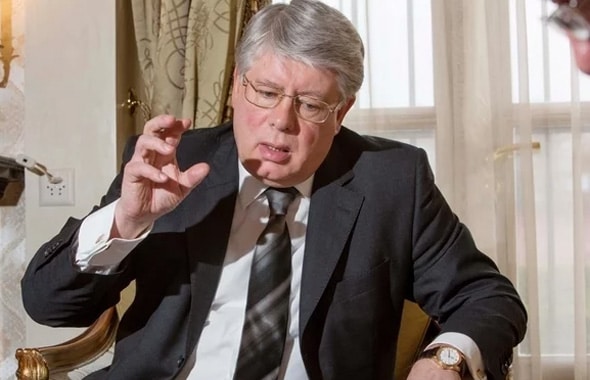“We are calling on the Americans to pack their rucksacks and go”
LATEST
Russia continued its PR campaign on Friday for a full US withdrawal from Syria, putting out messages both through military and diplomatic officials.
Although the US presence is now limited to backing of the Kurdish-led Syrian Democratic Forces in the north and east of the country, Moscow and the Assad regime would like to clear away the remaining American support of personnel — now said by the Pentagon to be about 2,000 troops — and weapons. That would enable the regime and Russia to put on more pressure on the SDF to withdraw from key locations, notably oil and gas fields that have been taken from the Islamic State, and restrict Kurdish demands for autonomy.
Alexei Borodavkin, the Permanent Representative to the UN in Geneva, said yesterday:
We believe that after the victory over the IS there is no need for the US-led coalition to further remain in Syria, especially given that they had not been invited there. So, we are calling on the Americans to pack their rucksacks and go. But apparently, this is not part of their plans, and this arouses concerns.
Defense Ministry spokesman Maj. Gen. Igor Konashenkov added, “There no longer exist any grounds or formal pretexts for American forces to be in Syria.”
During a quick visit to the Russian airbase in western Syria on Monday, Vladimir Putin declared “victory” over “terrorists” and announced a partial withdrawal of forces. However, his statement — one of a series of “withdrawals” declared since Russia’s military intervention propped up the Assad regime in September 2015 — was soon put into context as Putin asked Parliament to confirm the permanent Russian presence with the expansion of the Tartous naval base on the Mediterranean. The agreement will also ensure that Damascus has no legal jurisdiction over the Russian military complex.
After political maneuvers from 2013 to steer the US away from any confrontation of Bashar al-Assad, Moscow has largely pushed Washington aside since 2016. The Russians have linked up with Iran and Turkey — once the leading backer of the Syrian opposition — to define a political process in which the US is absent.
That process still faces significant challenges. Russia’s initiative for a “National Congress” has foundered because of Turkish objection to the presence of the leading Kurdish political factions, and the Assad regime is refusing to engage in any direct talks with the opposition. There are signs that Russia and Iran may be disagreeing over the eventual fate of Bashar al-Assad, if not the regime, with Moscow more willing to see the ruler pushed aside in a transition.
“US Training Militant Army”
Russian officials also put out the unsupported claim that the US military is training a “militant army” comprised of more than 750 former Islamic State and Jabhat al-Nusra fighters.
The Russian “Center for Reconciliation” in Syria proclaimed that the training camp is 20 km (12.5 miles) northeast of Jisr al-Shaddadi in Hasakah Province in the east of the country: “Under the leadership of American Special Operations Force instructors,, new armed units are being formed from disparate groups of militants…called the ‘New Syrian Army’.”
Regime Blasts UN Envoy De Mistura
A day after its collapse of the Geneva talks, the Assad regime has condemned UN envoy Staffan de Mistura.
De Mistura announced the end of the latest round on Thursday, saying the regime delegation was not “really looking to find a way to have a dialogue” as it refused direct talks with the Syrian opposition.
See Syria Daily, Dec 15: Geneva Talks Collapse Amid Regime Refusal of Direct Negotiations
From the opening of the talks on November 26, the regime group, led by UN Ambassador Bashar al-Ja’afari, staged walkouts as it insisted that there can be no discussion of the future of Bashar al-Assad.
On Friday, the regime’s Foreign Ministry warned:
Everyone should realize that the Geneva process is Syria-led intra-Syrian dialogue, and the Special Envoy must realize this fully and work to remove obstacles placed by the states and sides that control other parties in Geneva.
The envoy must be honest and objective in order to reach results that would put an end to the crisis.

